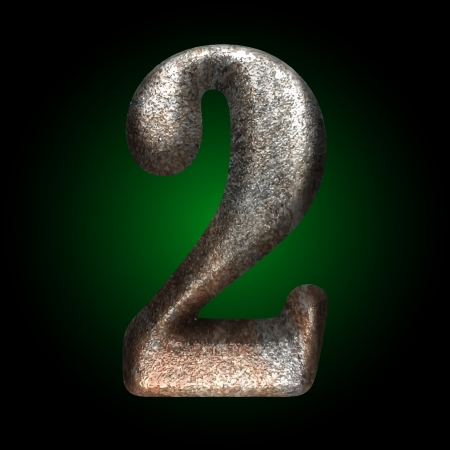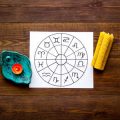Introduction: The Rising Popularity of Astrology in American Life
In recent years, astrology has experienced a remarkable resurgence across the United States, capturing the imagination of a new generation. Once relegated to the back pages of newspapers or late-night TV infomercials, astrology now enjoys mainstream appeal, especially among millennials and Gen Z. From personalized birth chart readings on popular apps to daily horoscopes circulating on social media, Americans are increasingly turning to the stars for guidance on everything from career moves to relationship choices. This cultural shift goes beyond mere entertainment; it reflects a broader search for meaning and self-understanding in an era marked by uncertainty and rapid change. As astrology’s influence grows, it is also beginning to shape significant personal decisions—including marriage and divorce. Understanding how astrology weaves its way into these intimate aspects of American life offers a fascinating lens through which to examine evolving social trends and values.
2. Astrology and Relationship Compatibility: Beliefs and Realities
Astrology has become a cultural touchstone in the United States, especially when it comes to navigating the complexities of romantic relationships. Many Americans casually check zodiac compatibility before a first date or even use astrological sign information as an icebreaker on dating apps. But how much do these beliefs truly shape decisions about marriage and divorce? The answer lies in the nuanced intersection between personal belief systems and broader societal trends.
The Prevalence of Zodiac Compatibility Checks
Research indicates that a significant portion of Americans—particularly Millennials and Gen Z—regularly consider astrological signs when evaluating romantic compatibility. This influence is most visible in online dating environments, where profiles frequently display sun signs and compatibility charts. According to a 2023 survey by YouGov, approximately 32% of Americans say they have checked their zodiac compatibility with a partner at some point, with women and younger adults reporting higher engagement rates.
How Astrological Signs Impact Relationship Decisions
Astrological beliefs can subtly (or sometimes overtly) steer relationship choices. Some individuals may avoid pursuing relationships with certain signs perceived as “incompatible,” such as Aries with Cancer or Leo with Taurus, based on popular astrology narratives. Conversely, couples who share “harmonious” signs—like Pisces and Scorpio or Libra and Gemini—may feel encouraged to deepen their commitment, attributing positive relationship dynamics to cosmic alignment rather than communication or shared values.
Influence on Marriage and Divorce Trends
This table illustrates key ways in which zodiac-related beliefs manifest in marriage-related decision-making:
| Astrology-Based Behavior | Potential Impact on Marriage/Divorce | Common in U.S. Demographics |
|---|---|---|
| Avoiding “Incompatible” Signs | May reduce likelihood of marriage with certain partners; could delay or redirect relationship progression | Millennials, urban populations |
| Consulting Astrologers for Wedding Dates | Can influence timing of marriage ceremonies; reinforces belief in cosmic fate over practical factors | Immigrant communities, spiritual seekers |
| Attributing Marital Problems to Star Sign Differences | Might rationalize separation/divorce as “destined”; reduces focus on conflict resolution skills | Younger adults, astrology enthusiasts |
| Using Horoscopes for Relationship Advice | Shapes expectations for marital roles and conflict; sometimes increases resilience via reassurance rituals | Diverse age groups, especially social media users |
While scientific evidence does not support astrology as a predictor of long-term relationship success, the belief itself can act as a self-fulfilling prophecy. For some couples, shared faith in astrology creates an added layer of meaning and ritual within their partnership, potentially boosting satisfaction. For others, rigid adherence to incompatible sign narratives may prematurely end promising relationships or provide convenient explanations for marital discord. Ultimately, astrology’s role in shaping American marriage and divorce trends reflects both personal choice and the ongoing search for meaning in modern love.

3. Astrological Trends in Marriage: Ceremony to Partnership
Astrology has become a surprisingly influential factor in how American couples approach marriage, extending well beyond the mere selection of wedding dates. Many engaged pairs consult astrologers or use popular astrology apps to identify auspicious days for their ceremonies, aiming to align their nuptials with favorable planetary movements. For example, Mercury retrograde is often avoided due to its reputation for communication mishaps and misunderstandings, while Venus transits are sought after for their association with love and harmony.
Astrology in Wedding Planning
The integration of astrological guidance starts early in the wedding planning process. From selecting venues that resonate with a couple’s shared zodiac elements (such as earth-themed settings for Taurus or Virgo) to choosing color palettes inspired by birth charts, astrology offers a framework for personalization. Some couples even incorporate celestial motifs—stars, constellations, or planetary symbols—into invitations, décor, and rituals, reflecting a desire for cosmic blessing and uniqueness.
Timing of Marriages
Beyond aesthetics, timing plays a crucial role. In the United States, it is increasingly common for couples to pick wedding dates that coincide with astrologically significant events like new moons or harmonious aspects between their sun and moon signs. This practice reflects a belief that cosmic alignment can set a positive tone for the marriage’s future. Conversely, periods marked by eclipses or challenging planetary squares are often sidestepped to avoid potential discord.
Astrological Guidance in Partnerships
Astrological influence does not end at the altar; many American couples turn to compatibility readings and synastry charts throughout their relationships. These tools are used both for conflict resolution and personal growth within the partnership. For some, regular check-ins with an astrologer become as routine as counseling sessions, providing guidance on navigating everything from major life decisions to everyday disagreements. Ultimately, astrology shapes not only how weddings are celebrated but also how partnerships evolve over time, blending tradition with contemporary spiritual practices unique to the American cultural landscape.
4. Divorce Decisions Through an Astrological Lens
In the United States, astrology is not just a tool for personal insight—it increasingly plays a role in shaping major life decisions, including divorce. While legal and financial factors remain central, many Americans turn to astrology for guidance during emotionally charged transitions. This section analyzes cases and observable trends where astrological beliefs have influenced the decision to separate or end a marriage, drawing from both anecdotal evidence and broader cultural narratives.
Anecdotal Evidence: Astrology’s Influence on Personal Choices
Across social media platforms and lifestyle publications, countless Americans share stories of consulting astrologers before deciding to leave their partners. Some report waiting for “mercury retrograde” to pass before initiating legal proceedings, while others recount how discovering zodiac incompatibilities—such as an Aries married to a Cancer—prompted them to reconsider their relationship’s future. These narratives reveal that astrology can serve as a coping mechanism or a rationalization for difficult choices, especially when individuals seek external validation for feelings of marital dissatisfaction.
Cultural Narratives in Popular Media
Astrology’s role in divorce has become part of American pop culture, with celebrities publicly attributing breakups to cosmic misalignments. Reality TV shows and podcasts often feature guests who explain their separations using astrological terminology, further normalizing the practice among viewers. This mainstream acceptance reflects a wider societal trend: Americans are increasingly open about integrating spiritual or mystical frameworks into practical life decisions, including those surrounding marriage dissolution.
Trends Across Demographics
| Demographic Group | Reported Use of Astrology in Divorce Decisions | Common Themes |
|---|---|---|
| Millennials & Gen Z | High | Social media sharing; emphasis on compatibility charts |
| Urban Professionals | Moderate | Consultation with astrologers; timing legal steps with planetary movements |
| Boomers & Gen X | Low to Moderate | Skepticism mixed with curiosity; references in support groups |
Systemic Factors: Astrology as a Decision-Making Framework
The use of astrology in divorce decisions is not merely individualistic—it reflects broader systemic factors within American society. The rise of wellness culture, increased stress around relationships, and declining stigma around both astrology and divorce contribute to this trend. For some, astrology offers a structured lens through which to process uncertainty, shift blame away from personal shortcomings, or find meaning in endings.
Conclusion: Navigating Separation with the Stars
While there is little empirical data directly linking astrology to higher divorce rates, its narrative power is undeniable. As Americans continue to seek holistic approaches to life transitions, astrology’s influence on divorce decisions—whether symbolic or substantive—is likely to persist as a distinctive feature of contemporary relationship culture in the U.S.
5. Skepticism, Science, and Systemic Factors vs. Astrological Influence
While astrology enjoys a significant cultural presence in the United States, especially among Millennials and Gen Z, it is crucial to critically examine the realities underlying marriage and divorce trends. Sociological and economic factors—such as shifting gender roles, evolving attitudes toward relationships, and the impact of financial stability—play a far more measurable role in shaping these trends than planetary alignments or zodiac compatibility charts.
The Sociological Context
Marriage rates in the U.S. have steadily declined over the past few decades, while divorce rates peaked in the 1980s and have since stabilized at lower levels. These patterns are closely linked to broader social changes: increased participation of women in the workforce, delayed age of first marriage, and growing acceptance of cohabitation before tying the knot. These systemic shifts have transformed how Americans approach commitment—changes that cannot be fully explained by astrological cycles.
The Economic Dimension
Economic realities exert profound influence on marriage decisions. Young adults today face mounting student debt, soaring housing costs, and an unstable job market—all factors that contribute to delayed or foregone marriages. Divorce rates also correlate with economic stressors: couples facing unemployment or financial hardship are statistically more likely to separate, regardless of their zodiac signs.
Astrology’s Perceived Role vs. Real-World Evidence
Despite its popularity, astrology lacks empirical support as a determinant of marital outcomes. While some individuals may use star signs as conversation starters or even as compatibility filters on dating apps, scientific research consistently finds no correlation between astrological compatibility and relationship success. Instead, communication skills, shared values, conflict resolution abilities, and socioeconomic stability are proven predictors of lasting marriages.
In summary, while astrology can offer entertainment or serve as a cultural touchstone in American relationship culture, a critical look reveals that systemic social and economic forces—not celestial configurations—truly shape marriage and divorce trends across the nation.
6. Astrology as a Social Connector or Divider in American Marriages
Astrology’s influence in the American relationship landscape is both connective and, at times, divisive. As astrology has entered mainstream culture, it has become a tool for forging bonds as well as drawing lines—particularly within the context of marriage and divorce. This duality plays out across matchmaking platforms, couples counseling sessions, and even within community circles where astrological compatibility is treated with surprising seriousness.
The Role of Astrology in Matchmaking
Many dating apps and matchmaking services now feature astrological filters, allowing users to select potential partners based on sun signs or birth charts. For some Americans, these filters are more than just fun—they serve as initial criteria for compatibility, shaping who people choose to date or even marry. While this can help like-minded individuals connect more quickly, it may also exclude promising matches based on astrological stereotypes rather than genuine compatibility.
Astrology in Couples Counseling
In the realm of relationship counseling, some therapists incorporate astrology into their practice either as an icebreaker or a framework for self-reflection. Couples might explore how planetary placements reflect communication styles or emotional needs. While this can offer new perspectives and foster empathy, it can also lead to overgeneralizations or blame-shifting if one partner attributes problems solely to “bad astrological matches.”
Community Building and Division
Astrology serves as a social glue in many American communities—think of astrology-themed meetups, discussion groups, or even online forums where people share experiences tied to their signs. These spaces offer validation and camaraderie, especially for those who feel misunderstood elsewhere. However, astrology’s popularity can also sow division: families or friend groups sometimes experience tension when members disagree on its legitimacy or when astrological beliefs clash with religious or scientific worldviews.
The Double-Edged Sword of Astrological Influence
Ultimately, astrology’s role in American marriages is complex. It can help individuals find common ground and foster intimacy but also create unnecessary barriers or conflict when used dogmatically. As astrology continues to shape how Americans approach love and partnership, its power as both a connector and divider cannot be underestimated—and deserves thoughtful navigation by those seeking lasting relationships.
7. Conclusion: Astrology’s Role in the Future of American Relationships
As we look ahead, astrology’s influence on marriage and divorce trends in the United States shows no signs of fading. Its resurgence among millennials and Gen Z reflects a broader cultural movement toward personalized meaning-making, digital community-building, and alternative frameworks for understanding human connection. For many Americans, astrological guidance offers more than entertainment—it provides language for articulating desires, fears, and compatibility concerns within relationships. In this way, astrology acts as both a mirror and a map: reflecting evolving social attitudes about love and commitment while also shaping choices about whom to marry or when to part ways.
Astrology’s enduring popularity signals an ongoing negotiation between tradition and modernity in American cultural identity. As marriage becomes less rigidly defined by religious or legal standards, individuals seek new sources of wisdom that resonate with personal beliefs and lived experiences. This cultural shift is evident in dating app filters based on star signs, wedding ceremonies incorporating astrological themes, and even divorce proceedings where planetary alignments are considered meaningful context.
Looking forward, astrology may continue to democratize relationship decision-making by empowering individuals—especially those historically marginalized by mainstream norms—to trust intuition and pursue authenticity. At the same time, it invites critical conversations about the balance between fate and free will in matters of the heart. Whether embraced skeptically or wholeheartedly, astrology has become an integral part of America’s relational landscape—one that bridges ancient symbolism with contemporary self-discovery.
Ultimately, the significance of astrology in shaping marriage and divorce trends lies not just in who stays together or separates, but in how Americans define love, happiness, and destiny itself. As these values evolve, so too will the role of astrology—offering fresh insights into the ever-changing story of American relationships.


